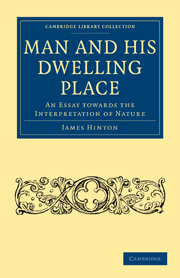CHAP. III - THE ILLUSTRATION FROM ASTRONOMY
Published online by Cambridge University Press: 29 August 2010
Summary
Callicles.—I know not how it is, Socrates, you appear to me to speak well. Yet that which happens to most, happens to me; I am not quite persuaded by you.
—Plato: Gorgias.THE difficulty which is naturally felt in conceiving that the fact which causes our experience is spiritual may be much diminished by the aid of analogy. Not that analogy furnishes any part of the evidence on which the statement rests. That evidence claims to have a demonstrative basis in science, which demands that we should ascribe the perceived inertness to man, and recognise that the inert phenomenon denotes a fact that cannot be inert. But however sufficient these or any other proofs might be granted to be, there still remains a difficulty in respect to the feeling, a strangeness, and as it were an unnaturalness, that has its seat chiefly in the sense, and which might express itself in such terms as these: ‘What does it avail to prove the world not physical? of what use is it to bring arguments that these things which I see and handle, which I use for food or clothing, which are passive before my touch, are spiritual? I know that they are not. This is the world in which I am, and it is unspiritual enough.’ All must be subject for a time to this feeling: it is chiefly the result of habit, and soon ceases to cause any embarrassment.
- Type
- Chapter
- Information
- Man and his Dwelling PlaceAn Essay towards the Interpretation of Nature, pp. 48 - 66Publisher: Cambridge University PressPrint publication year: 2009First published in: 1859



